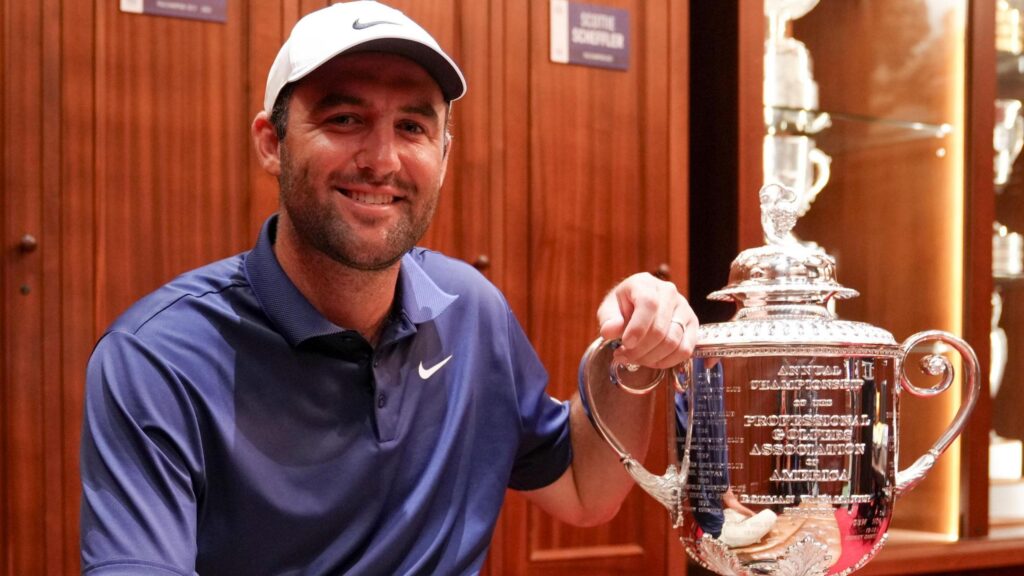The recent triumph of Scottie Scheffler at the US PGA Championship has elicited considerable commentary regarding his exceptional mindset, which the media has likened to that of golfing legends. Winning this prestigious event has placed Scheffler halfway towards achieving what every golfer aspires to accomplish: a career Grand Slam. This newfound accolade comes at an interesting time, notably just a year after his shocking arrest at Valhalla. Scheffler’s resilience and unwavering focus have once again underscored his status as one of the best golfers in contemporary times, causing concern among those chasing his success.
On May 17, 2024, shortly before a significant tournament warm-up, Scheffler faced an unexpected setback that would test his mettle – he was arrested. The following year, while lifting the Wanamaker Trophy on May 18, 2025, he reflected on how far he had come, saying, “It’s pretty special sitting here with the trophy. This means a lot to me.” This mindset, along with his ability to quickly bounce back from adversity, is precisely what keeps him ahead of the competition.
In contrast, Rory McIlroy, who celebrated a long-awaited win at the Masters prior to Scheffler’s triumph, exhibited different emotions. While McIlroy battled his own set of challenges during his victory, Scheffler’s performance at Quail Hollow felt almost predestined. Despite not having his best game on the front nine of the championship round, where he struggled, Scheffler showcased the mental toughness that has increasingly become his hallmark. For many athletes, a moment of doubt may lead to diminished performance, but Scheffler responded to a bogey on the ninth hole by immediately birdieing the next. This ability to recover quickly has further solidified his reputation as an athlete whose performance transcends typical competition pressures.
Though he faced his share of ups and downs during the tournament, Scheffler ended the weekend feeling triumphant, even as other golfers faltered under pressure. His performance was reminiscent of the era when Tiger Woods dominated the golf scene, where the pressure of chasing a lead became too much for rivals to handle. As much as Scheffler seems to be carving his path in the sport, the echoes of Woods’ competitive nature linger in the analysis of his accomplishments.
Interestingly, a year prior to his championship win, Scheffler’s arrest provided an unusual backdrop to his story. Following an encounter with law enforcement, images of him in an orange jumpsuit went viral across social media platforms. Despite this striking scenario, he still managed to compete in the tournament, finishing surprisingly strong by shooting an impressive five-under-par score. The juxtaposition of his life experiences— from the shock of being arrested to the euphoria of winning a major championship—adds a unique layer to his narrative that both intrigues and draws acclaim from the public.
The psychological resilience showcased by Scheffler positions him as a member of an elite group of athletes who can confront immense stress and emerge stronger. His victory at Quail Hollow, a course known for its difficulties especially with the famed “Green Mile,” represents not just his skill but also his propensity to thrive in chaotic environments. As he added another major title to his resume, the golf world took notice, aware that Scheffler will not only be a competitor at the US Open but a frontrunner, instilling trepidation among other elite players. It may be that Scheffler’s trajectory is paving a way that aligns with legendary status, and his remarkable talent serves as a reminder for competitors of the relentless pursuit of excellence in the sport. As the upcoming tournaments approach, Scheffler’s established mindset and unmatched focus will undoubtedly be scrutinized by a golfing community that remains ever-watchful.



